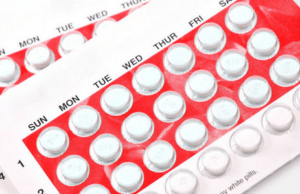Government urged to increase Adolescent Reproductive Health budget
 The National Population Council (NPC) has called for media advocacy for government to increase budget for Adolescent Reproductive Health (ARH) programming and limit donor support.
The National Population Council (NPC) has called for media advocacy for government to increase budget for Adolescent Reproductive Health (ARH) programming and limit donor support.
This it said, would help roll out initiatives to educate adolescent girls to delay pregnancy, reduce maternal mortality, improve health outcomes of women and their children, contribute to broad development goals and reduce poverty.
Mrs Gladys Tetteh-Yeboah, a Public Health Consultant and facilitator, who made the call at a workshop for journalists, said it was important to improve reproductive health and ensure that young people lead full and productive lives.
The workshop, which was organised in partnership with NPC and Marie Stopes International, Ghana, sought to create a platform for discussions with the media on their role in addressing Adolescent Sexual Reproductive Health (ASRH) issues and the attainment of the Sustainable Development Goals (SDGs)
Mrs Tetteh-Yehoah said Sexual and Reproductive Health (SRH) issues had direct links to all the 17 goals of the SDGs, and when addressed properly, could lead to the achievement of the quality life envisioned for Ghanaians by the year 2030.
She appealed to government to strengthen technical capacities for ARH programmes for the wellbeing of adolescents to enable them remain free from unwanted pregnancies, unsafe abortions among others.
“Strengthen enabling factors such as strategies to make ARH services available to all,” she stated.
This she said would enable the country reduce poverty in this regard.
Dr Leticia A. Appiah, the Executive Director of the National Population Council, said although a lot of work was being done to address the SRH needs of Ghanaians, the impact had been slow.
She attributed this to the lack of sustainable financing, low education, lack of timely information, poor access to available services such as family planning, stigmatization and the negative attitudes of service providers, especially towards ASRH rights and needs.
She noted that teenage pregnancy was still unacceptably high among girls at the basic school level leading to increased dropout rates, especially in rural Ghana.
The media had influential powers for enhancing education, effecting cultural change of negative practices, and pushing for political support and policy implementation, for adequate resources to address ASRH issues, she noted.
Dr Appiah said with Ghana’s current population being predominantly youthful, the country could not afford to leave anyone behind, but to ensure that their needs were holistically addressed to ensure national development.
Dr Robert K Mensah, the Reproductive Health Specialist UNFPA, noted that the last maternal health survey conducted in the 10 regions in 2017 indicated that maternal / adolescent pregnancy who are either bearing a child or pregnant between the ages of 15 and 19 was 14.4 per cent.
“This means that, nationally if you take 100 girls between the ages of 15 and 19, 15 of them or 14 of them are already bearing children or they are pregnant.
“Out of the 10 regions, seven of them were above the national average, Western Region led 18.9 per cent followed by Volta region with 17.9 per cent, the last of the seven region was the Ashanti region, which was 14.8 per cent. So it tells you that this thing is spreading throughout the country,” he added.
Dr Mensah said “at age 15, the pregnancy prevalence rate was 3.4 per cent in other words, every 100 girls at the age of 15 in 2017, three to four of them will be either pregnant or bearing children. 16 years was 6.6 per cent, 17 years was 12.3 per cent, 18 years recorded 22.5 per cent and 19 years 32.5 per cent”.
He sai21sd the figures were worrying hence the need for the media to help in this regard.
Ms Patricia Antwi Boasiako, the Deputy Director of Operations and Advocacy, Marie Stopes International, said adolescents lacked the recognition needed to make informed choices and decisions regarding their SRH and rights.
This she said led to consequences such as unwanted pregnancies, high maternal mortalities and morbidity due to unsafe abortions.
According to Ghana’s 2014 Demographic and Health Survey (DHS), about 14 per cent of antenatal attendants were adolescents aged between 15 and 19 years.
“We cannot continue to do the same thing and expect different results,” she said, and urged the media to devote much attention to amplifying simple and clear information on the ASRH issues to effect a change in the attitudes of service providers.
Source: GNA
